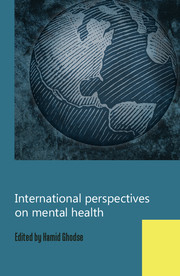Book contents
- Frontmatter
- Contents
- List of contributors
- Preface
- Africa
- Asia
- Afghanistan
- Armenia
- Azerbaijan
- Bahrain
- Bangladesh
- Brunei Darussalam
- Cambodia
- Hong Kong
- India
- Iran
- Iraq
- Israel
- Japan
- Jordan
- Kuwait
- Laos
- Lebanon
- Malaysia
- Mongolia
- Nepal
- Sultanate of Oman
- Pakistan
- The Philippines
- Qatar
- Singapore
- South Korea
- Sri Lanka
- Syrian Arab Republic
- Tajikistan
- Thailand
- Timor-Leste
- Turkey
- United Arab Emirates
- Yemen
- Australasia
- Europe
- North America
- South America
- Index
Armenia
from Asia
Published online by Cambridge University Press: 02 January 2018
- Frontmatter
- Contents
- List of contributors
- Preface
- Africa
- Asia
- Afghanistan
- Armenia
- Azerbaijan
- Bahrain
- Bangladesh
- Brunei Darussalam
- Cambodia
- Hong Kong
- India
- Iran
- Iraq
- Israel
- Japan
- Jordan
- Kuwait
- Laos
- Lebanon
- Malaysia
- Mongolia
- Nepal
- Sultanate of Oman
- Pakistan
- The Philippines
- Qatar
- Singapore
- South Korea
- Sri Lanka
- Syrian Arab Republic
- Tajikistan
- Thailand
- Timor-Leste
- Turkey
- United Arab Emirates
- Yemen
- Australasia
- Europe
- North America
- South America
- Index
Summary
Armenia is a landlocked mountainous country between the Black Sea and the Caspian Sea, in the southern Caucasus. It shares borders with Turkey to the west, Georgia to the north, Azerbaijan to the east, and Iran and the Nakhchivan exclave of Azerbaijan to the south. Its total area is 29 743 km2. A former republic of the Soviet Union, Armenia is a unitary, multi-party, democratic nation state with an ancient cultural heritage. Armenia prides itself on being the first nation formally to adopt Christianity (in the early 4th century).
According to the census of 2001, the population of Armenia is 3 219 200 but the July 2009 estimate is 2 967 004. The population of Armenia is homogeneous – Armenians form 97.9% of the population. The spoken language is Armenian. The main religious group is Armenian Apostolic (94.7%). The age structure is as follows: 14 years or under, 18.2% (male 289 119, female 252 150); 15–64 years, 71.1% (male 986 764, female 1 123 708); 65 years and over, 10.6% (male 122 996, female 192 267) (2009 estimates). The population growth rate is estimated to be 0.03% per year, the birth rate per 1000 population to be 12.53 and the death rate 8.34 per 1000. The infant mortality rate is 20.21 per 1000 live births. Life expectancy at birth is 72.68 years (69.06 years for males, 76.81 years for females) and healthy life expectancy at birth 66.7 years. A majority of the population (64.2%; 2 066 700 persons) resides in urban areas. Most adults (99.5%) are literate.
Healthcare system
As a post-Soviet state, the Republic of Armenia inherited a health system organised according to the Semashko model, with guaranteed free medical assistance and access to a comprehensive range of medical care for the entire population. The system was highly centralised, with vertical management dominating. Financial and other allocations were based on national norms and failed to take account of population health needs. There was an emphasis on structural and quantitative indicators, resulting in the expansion of physical capacity, an oversupply of health personnel and a surplus of hospital beds, along with an unequal distribution of resources.
- Type
- Chapter
- Information
- International Perspectives on Mental Health , pp. 68 - 72Publisher: Royal College of PsychiatristsPrint publication year: 2011

